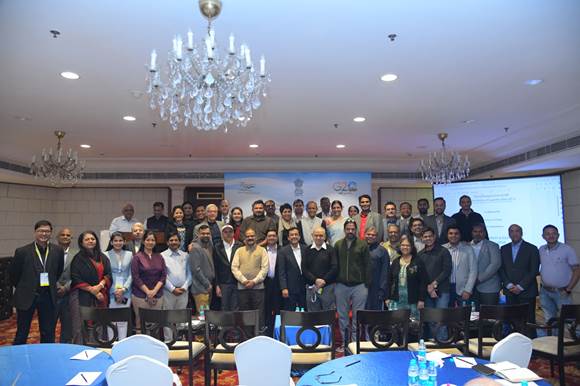NEW DELHI, December 18, 2023 – The Indian Institute of Corporate Affairs (IICA) School of Business Environment (SoBE) held a one-day workshop in New Delhi on Saturday on Business Responsibility and Sustainability Reporting (BRSR).
At the workshop, which drew in over 150 prospective responsible business practitioners, over eight technical sessions emphasized the key components of BRSR Disclosures and their resolution. The inaugural speech for these workshops was given by Mr Praveen Kumar, DG & CEO, IICA. He emphasized that BRSR and environmental, social, and governance (ESG) play a strategic investment role rather than being just about compliance or cost to the business. He emphasized that this training will be very helpful in meeting the high demand from ESG professionals.
Prof. Garima Dadhich, Associate Professor & Head SoBE, IICA, led the discussion in the first technical session on the topic of “Inter-linking of ESG-NGRBC-BRSR Principles.” She covered and clarified the various NGRBC Principles and their connection to BRSR. She emphasized that “Disclosures” are chances to learn, demonstrate, and advance. Mr. Bharat Wakhlu, the founder and president of the Wakhlu Advisory, led the following session on BRSR from an industrial perspective. This very interactive session highlighted the role and responsibility of Industries while bringing to light the fundamental concerns of happy and healthy living for both the present and the future generations.

Using data and statistics, Mr. Dhiraj, Lead-Programmes, PRAXIS, illustrated in the following session on “Illustrating Top Companies BRSR Database” how businesses have grown to recognize and embrace the BRSR journey. He made the point that BRSR should be viewed as a “Roadmap” rather than a rigid compliance format since it is a tool for corporate assistance and engagement. In his talk on “Significance of Human Rights and DE & I (NGRBC Principle 6),” Mr. Pradeep Narayanan, Chief Executive Officer of Partner in Change, went into detail about the social equity and inclusion issues that affect businesses and clarified the “materiality approach” and “saliency approach.”
The necessity of defending the rights and putting safety precautions in place for women and children was brought up in the session on “Women and Children Friendly Policies (NGRBC Principles 3, 5 and 8)” led by Mr. Shubrajyoti Bhowmik, Public and Private Partnership Officer, UNICEF. Businesses must show their dedication to moral and socially conscious behavior, making a positive contribution to society and supporting global sustainability goals. This should not be done in order to satisfy policy requirements.
The session on ESG as a tool for establishing a responsible brand was led by Dr. Ravi Raj Atrey, Chief Programme Executive, SoBE, IICA, who also discussed the connections between sustainability and responsible branding. Additionally, he clarified how the tree model can assist in encouraging businesses to behave responsibly. Mr. Dinesh Agrawal, Principal Consultant at Consocia Advisory, led the final session on “Exploring the ‘S’ of ESG,” which focused on the analysis of the social responsibility and impact of investments and businesses. He emphasized that the letter “S” stands for several things, such as equitable labor practices, inclusivity and diversity, and worker welfare. The incorporation of social considerations into ESG frameworks is a reflection of the growing understanding that social responsibility and sustainable business practices are inextricably linked to long-term success and favorable societal outcomes.

